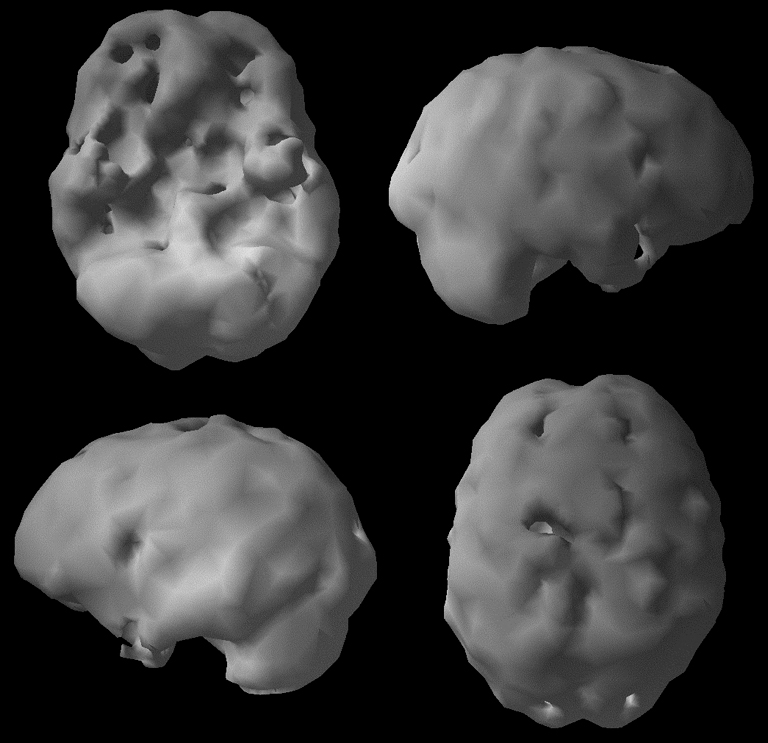CHAPTER 12
I IS FOR IMMUNITY/INFECTION ISSUES
STRENGTHEN YOUR INTERNAL DEFENDERS
My strategy is to stop the assaults —to reduce the number of factors your immune system has to deal with by cleaning up your diet, healing your gut, lightening your toxic burden, treating your infections, and reducing your overall stress.
AMY MYERS, THE AUTOIMMUNE SOLUTION
JESSE: AN IMMUNE SYSTEM GONE HAYWIRE
Jesse, 42, was raised on a farm in the Northwest. She became a successful news reporter, which led to promotions in bigger and bigger cities. She was under chronic stress, dieted constantly to keep her weight low for her television appearances, and rarely got a full night’s sleep. While on a work trip to London, she lost her sight for three hours and was incredibly frightened. She hid the incident from her husband and work supervisor, hoping it was a fluke. Three weeks later, feeling weak on one side, she went to her doctor, who referred her to a neurologist. After a physical exam, MRI, and other tests, Jesse was diagnosed with multiple sclerosis (MS), a disorder in which the body’s immune system attacks the lining of the spinal cord and brain cells (called the myelin sheath). She was put on immune-suppressing drugs, and their side effects made her feel awful.
Deciding there had to be a better way to deal with her illness, Jesse took time off work and came to our clinic for evaluation. Her SPECT scan revealed overall low blood flow to her brain. She had high levels of C-reactive protein and mercury, and her vitamin D level and Omega-3 Index were both extremely low. She told me that her family’s farm had often been sprayed with pesticides and herbicides.
To get healthy, Jesse had eight silver fillings removed and began treatments to support detoxification. She also went on an elimination diet and found she was very sensitive to gluten, dairy, soy, and corn. She was so excited about the improvements she saw from these dietary changes that she became certified in integrative nutrition.
Within six months, Jesse was symptom-free and has remained so for six years. Her initial MRI showed bright white-matter lesions throughout her brain, typical of MS. Her follow-up scan four years later showed that they had significantly decreased —something her neurologist had a hard time explaining.
JESSE’S “BEFORE” AND “AFTER” BRAIN SPECT SCANS

Overall low blood flow

Significantly improved blood flow
JESSE’S BRIGHT MINDS RISK FACTORS AND INTERVENTIONS
BRIGHT MINDS |
JESSE’S RISK FACTORS |
INTERVENTIONS |
Blood Flow |
Low blood flow on SPECT |
Hydration, exercise, and ginkgo biloba |
Retirement/Aging |
||
Inflammation |
High CRP, low Omega-3 Index |
Limited omega-6 foods; omega-3 fatty acid supplements; elimination diet |
Genetics |
||
Head Trauma |
||
Toxins |
Pesticides, mercury |
Organic diet, detoxification treatments (including N-acetylcysteine), brassicas |
Mental Health |
Chronic work stress |
Stress management tools, saffron |
Immunity/Infection Issues |
Multiple sclerosis, low vitamin D |
Vitamin D3 supplementation, raw garlic and onions, shiitake mushrooms |
Neurohormone Deficiencies |
||
Diabesity |
||
Sleep Issues |
Insomnia |
Sleep strategies |
YOUR BODY’S DEFENSE SYSTEM
It is important to constantly strengthen and build up your immunity. Why? Think of the infamous December 1981 trash collectors’ strike in New York City. Suddenly, the city’s rats got to join in the Christmas spirit with plentiful meals on the sidewalks. But not everyone was as happy as the rodents. Tempers flared. Where did the vermin come from? It turns out they were always there, but when the streets were swept clean of junk, the rats were kept under control. They stayed hidden because there was nothing in plain sight to eat. During the sanitation department’s strike, however, garbage was everywhere, so the rats wound up running rampant, multiplying and spreading disease. So, too, when you put trash in your body or don’t regularly keep your immune system healthy, you become vulnerable to “vermin”: serious illnesses, immune dysfunction, and brain disease.
Immunity is your body’s natural defense system. In a general sense, it has two broad duties: defense and tolerance. For the first, it helps to defend against invaders from outside your body, such as bacteria, viruses, and parasites. Your immune system also patrols your body, looking for troublemakers, such as cancer cells. Second, the immune system helps determine your tolerance of potential triggers from the outside world, such as allergens (including pollen, bee stings, wheat, peanuts, and corn), as well as internal attacks, such as autoimmune disorders (including rheumatoid arthritis and lupus).
When your defenses break down, you are more vulnerable to infections and cancer. When your body’s tolerance is overwhelmed, you have more issues with allergies and autoimmune disorders, in which your body attacks itself. Both autoimmune disorders and infections (especially when they become chronic) increase your risk of brain fog, memory issues, and dementia.

THE FOUR BASIC IMMUNE SYSTEM FUNCTIONS |
|

In a very simple sense, your immune system
- identifies invaders or parts of your own body that have gone awry
- calls for help from your white blood cells
- tags and destroys the troublemakers
- remembers them if and when they resurface
There are five categories of immune disorders:
- Immune deficiency disorders: These arise at birth because of an ineffective immune system or are acquired as an illness, like human immunodeficiency virus (HIV) or acquired immune deficiency syndrome (AIDS), which damages the immune system.
- Allergies: Neutral “visitors,” such as grass, cat dander, or peanuts, are viewed as foes by the body, causing asthma, eczema, or worse. Asthma has been shown to increase the risk of dementia by 30 percent.[433]
- Cancers of the immune system, such as leukemia and lymphomas.
- Autoimmune disorders: Think of these as friendly fire; the immune system attacks its own tissues.
- Persistent infections, due to a weakened immune system.
This chapter will focus on the last two categories, autoimmune disorders and infections, because when left untreated, they have been associated with serious memory problems and dementia. With treatment, however, there can be significant improvement.
AUTOIMMUNE DISORDERS
When the body’s immune system erroneously attacks and destroys healthy body tissue, the result is an autoimmune disorder. White blood cells, an important part of the immune system, help protect against harmful substances, such as bacteria, viruses, toxins, and cancer cells. These substances contain antigens, or foreign substances, that the immune system recognizes as troublemakers and then tries to destroy by producing antibodies against them. When you have an autoimmune disorder, your immune system doesn’t distinguish healthy tissue from these antigens. As a result, your body sets off a reaction that destroys normal tissues.
We still do not know all of the causes of autoimmune disorders, but as in Jesse’s case, it is likely that many factors may contribute to them, including
- Leaky gut: See chapter 7, page 98.
- Allergens: These may be environmental (trees, grasses, flowers) or milk, eggs, fish, shellfish, tree nuts, peanuts, wheat, or soybeans. (These last eight are the primary food allergens, according to the US Food and Drug Administration.)
- Toxins
- Stress
- Obesity
- Sleep disorders
- Lack of exercise or excessive exercise
- Poor diet
- Nutrient deficiencies
- Hidden infections
- Head trauma
More than 100 different autoimmune disorders affect 50 million people in the United States, including multiple sclerosis, rheumatoid arthritis,[434] systemic lupus erythematosus,[435] Crohn’s disease,[436] psoriasis,[437] Hashimoto’s thyroiditis, and type 1 diabetes. Many of these double or triple the risk for serious memory problems.
The conventional approach to treating many of these disorders is to shut down the immune system with powerful medications, such as nonsteroidal anti-inflammatory medications, steroids, or anticancer drugs like methotrexate. But my friend and colleague Mark Hyman, MD, director of Cleveland Clinic’s Center for Functional Medicine, thinks it is a mistake to think of these as separate disorders requiring distinct treatments. A far better approach is to address them as one disorder in which the immune system begins to attack itself. If you suffer from one of these disorders, he believes the first question to ask yourself is What is making my immune system so angry at me? The best defense is to address all of your BRIGHT MINDS risk factors discussed in the book.
INFECTIOUS DISEASES: BRAIN TROUBLE TOO
In a 2016 Journal of Alzheimer’s Disease editorial,[438] an international consensus group of 33 scientists expressed concern that infectious diseases were being overlooked as a major cause of memory problems and dementia. Presenting evidence from more than 100 research studies, they argued that viruses, usually dormant in the brain, can become active again after significant stress or when the immune system is suppressed. Even something as common as cold sores can have consequences: In a review of 35 studies, people testing positive for herpes simplex 1 (cold sores) or herpes simplex 2 (genital herpes) had an increased risk of memory problems, and having both increased the risk further.[439] Be careful whom you kiss!
Not everyone exposed to infectious diseases gets sick from them. Your vulnerability to illness often has to do with the strength of your immune system and your exposures, stress level, and habits. Yet based on the evidence of tens of thousands of brain scans I have examined, I believe that “infectious disease” will be an important subspecialty in psychiatry within the next twenty years. Infectious illnesses including Lyme disease, toxoplasmosis, syphilis, Helicobacter pylori (H. pylori), HIV/AIDS, herpes, and others are a major cause of psychiatric and cognitive problems that few medical professionals recognize.
When I first started performing SPECT scans in 1991, I saw a number of patients who had been diagnosed with chronic fatigue syndrome and fibromyalgia. They were often dismissed by the medical community as “psychiatric patients,” which was almost like classifying them as hysterical or exhibiting a stress reaction, and then referred to me. (I have always been frustrated by physicians who, when they don’t know what is going on with a patient, label them as “psychiatric.” Hey, I think, that’s my job!). Many of these patients’ scans looked truly awful, revealing overall low blood flow caused by undiagnosed infections. Of course these people appeared hysterical, unhappy, angry, or anxious! The organ behind their behavior —the brain —was being ravaged by an infection. The scan below is an example.
CHRONIC FATIGUE SYNDROME BRAIN SPECT SCAN

For a look at the connection between an infectious illness and a serious mental health issue, see the image on the next page, which compares the states in the United States with the highest incidence of schizophrenia with those that have the highest incidence of Lyme disease (and the highest prevalence of ticks carrying the disease).
At Amen Clinics we’ve seen hundreds of patients with resistant complex psychiatric symptoms or cognitive problems who tested positive for Lyme disease and got significantly better when it was treated. Interestingly, a 2014 study reported that the antibiotic minocycline, used to treat Lyme disease, was found to decrease symptoms of schizophrenia in a 12-month study.
SCHIZOPHRENIA VS. LYME

Source: J. S. Brown Jr., “Geographic Correlation of Schizophrenia to Ticks and Tick-Borne Encephalitis,” Schizophrenia Bulletin 20, no. 4 (1994), 755–75; used with permission
It was widely reported that Kris Kristofferson was diagnosed with Alzheimer’s disease. He was symptomatic for a decade and fading fast when he saw Mark Filidei, DO, at the Whitaker Wellness Clinic. (Mark also works with us at Amen Clinics as our director of integrative medicine.) After extensive testing, Dr. Filidei diagnosed the Hall of Fame singer with Lyme disease and treated him with antibiotics and hyperbaric oxygen therapy. After a few treatments, Kristofferson reportedly told his wife, “I feel like I’m back” and has done much better.[440]
If no one suspects that an infectious illness may be attacking the brain, many doctors settle on the most common diagnosis for one’s age group, such as depression or Alzheimer’s, and begin treatments that are ineffective or even toxic. Sadly, it is not just a tragedy for older people.
Jasmine: a young woman robbed of her brain
Jasmine, 26, couldn’t get out of the funk she had been in for more than a year. She was depressed, anxious, and obsessive. She couldn’t focus or remember —all new symptoms for her. Her condition became so bad that she had to drop out of her doctoral program in clinical psychology. Five antidepressants had no effect, three different therapists could not help her, and changes to her diet didn’t work. Jasmine was giving up hope when her mother brought her to our clinic.
Her SPECT scan had an overall toxic appearance, even though she said she had never used drugs and didn’t smoke or drink alcohol. Her diet was poor, her sleep was interrupted, and she had low vitamin D and Omega-3 Index. Her blood tests confirmed exposures to Lyme, Epstein-Barr virus, West Nile virus, and cytomegalovirus. By supporting her immune system and treating these infections over the next two years, we were able to help her improve her health so she could return to school.
JASMINE’S “BEFORE” AND “AFTER” BRAIN SPECT SCANS


JASMINE’S BRIGHT MINDS RISK FACTORS AND INTERVENTIONS
BRIGHT MINDS |
JASMINE’S RISK FACTORS |
INTERVENTIONS |
Blood Flow |
Low blood flow on SPECT |
Hydration, exercise, and ginkgo biloba |
Retirement/Aging |
||
Inflammation |
Low Omega-3 Index |
Limited omega-6 foods; omega-3 fatty acids EPA and DHA supplements; elimination diet |
Genetics |
||
Head Trauma |
||
Toxins |
||
Mental Health |
Depressed and anxious |
Stress management tools, saffron |
Immunity/Infection Issues |
Low vitamin D; positive for Lyme, Epstein-Barr virus, West Nile virus, and cytomegalovirus |
Supplemental vitamin D3, raw garlic and onions, shiitake mushrooms |
Neurohormone Deficiencies |
||
Diabesity |
||
Sleep |
Insomnia |
Sleep strategies |
A really bad cat
Question: What do the following have in common: house pets, traffic accidents, bipolar disorder, Alzheimer’s disease, reckless behavior, schizophrenia, cancer, and suicide?
Answer: Toxoplasma gondii. This devious parasite is carried by cats and infects an estimated one-third of the world’s population with toxoplasmosis. It has a strong link to schizophrenia, bipolar disorder, reckless behavior, and suicide. It is also implicated in Alzheimer’s and Parkinson’s disease, cancer, heart disease, and autoimmune disorders.[441] Women who become infected during pregnancy can pass the infection to their developing infant, which can lead to blindness or mental disability later in life; sometimes there is brain damage at birth.
In a fascinating TED talk,[442] science writer Ed Yong eloquently told this love story:
Toxo infects . . . a wide variety of mammals, but it can only sexually reproduce in a cat. . . . If Toxo gets into a rat or a mouse, it turns the rodent into a cat-seeking missile. If the infected rat smells the delightful odor of cat piss, it runs towards the source of the smell rather than the more sensible direction of away. The cat eats the rat. Toxo gets to have sex. It’s a classic tale of Eat, Prey, Love. . . . Toxo releases an enzyme that makes dopamine, a substance involved in reward and motivation. We know it targets certain parts of a rodent’s brain, including those involved in sexual arousal.
The parasite is controlling the host. Maybe we don’t have as much control over our behavior as we think we do.
TOXOPLASMA GONDII


CHECKUP FOR IMMUNITY OR INFECTIOUS DISEASE ISSUES
Know your personal history
If you have a history of allergies, rashes, or repeated infections, it could indicate an immune system vulnerability.
Lab tests
The following blood tests are important to determine the health of your immune system.
- Complete blood count with differential to look at the distribution of white blood cells, one of the principal actors of the immune system.
- Erythrocyte sedimentation rate (ESR): This common test is a nonspecific measure of inflammation, which is high in autoimmune disorders.
- Antinuclear antibodies (ANA): The immune system normally makes antibodies to help fight infection, but antinuclear antibodies often attack the body’s own tissues. Test results are often high in autoimmune disorders.
- Rheumatoid factor (Rh): Rh is an antibody that is measurable in the blood. It can bind to other antibodies and cause problems.
- Vitamin D: The liver and kidneys convert vitamin D into a hormone that regulates almost all organs. Two-thirds of the US population is low in vitamin D. The blood test to get: 25-hydroxyvitamin D level. A normal level is 30 to 100 ng/mL; an optimal level is 50 to 100 ng/mL.
- Screening for common infections: When we see evidence of infectious disease on SPECT scans, we look for it with additional testing. At Amen Clinics we often use Medical Diagnostic Laboratories (www.mdlab.com) to screen for possible infectious diseases. If your memory is not what it once was and you don’t have the benefit of a SPECT scan, consider getting screened for infectious diseases that commonly affect memory, such as:

Symptoms to Investigate


PRESCRIPTION TO REDUCE YOUR IMMUNITY AND INFECTIOUS DISEASE RISK
The Strategies
- Work with a knowledgeable health-care professional. You need a medical partner to diagnose and treat any immune system issues or infections.
- Do an elimination diet for a month. Try staying away from sugar, gluten, dairy, corn, soy, artificial colors, additives, and preservatives to see if you feel better.
- Get tested for heavy metals. See chapter 10, page 158.
- Take steps to fix your gut. See chapter 7, page 98.
- Optimize your vitamin D level. See “The Sunshine Vitamin” on page 197.
- Work on managing stress. Stress lowers immunity and increases the risk of autoimmune diseases.[452] One of my favorite immunity-boosting stress-management techniques is laughter.[453] “A cheerful heart is good medicine” (Proverbs 17:22). Watching comedies can be healing, literally.
In 1964, noted journalist Norman Cousins, editor of the Saturday Review, was diagnosed with a debilitating autoimmune disease and told that he had a 1 in 500 chance of surviving. Given the odds, Cousins did three things against the medical wisdom of the day. He took high doses of vitamin C; he moved out of his hospital room and into a nice hotel room; and he procured a projector and hundreds of hours of comedies, including episodes of Candid Camera and the Marx Brothers. The first night he laughed so hard at the shows that he was able to sleep better, without pain. Over time, as he continued watching the videos, his ESR level dropped. Soon he was back at work, doing what he loved. Cousins literally laughed himself back to health —and lived to tell the story in his 1979 bestseller, Anatomy of an Illness. I read it as a second-year medical student, the year I decided to become a psychiatrist.
Pop a mushroom pill. The unique and diverse compounds in these fungi, not found in other plants, have immune-enhancing effects.[454] Studies report they also have antioxidant, antitumor, antivirus, anti-inflammatory, and antidiabetic properties.[455] |
The Nutraceuticals
- Take a therapeutic mushroom. For their multiple benefits, we recommend taking mushrooms as supplements (as well as eating them; see page 200). Among the most researched are
- Lion’s mane: improves mood and memory in patients with mild cognitive impairment[456]
- Shiitake: improves immunity and decreases inflammatory markers[457]
- Reishi: anti-inflammatory, immunity enhancing, and mood promoting[458]
- Cordyceps: a favorite among athletes because it increases ATP production, strength, and endurance, and has anti-aging effects[459]
- Enhance your immune system to fight infections with these nutrients:
- Aged garlic[460]
- Anthocyanins: fruit and vegetable extracts, blueberries, cranberries, grapes[461]
- Echinacea[462]
- Folate[463]
- Melatonin:[464] See chapter 15, page 250.
- Probiotics[465]
- Selenium[466]
- Vitamin A[467]
- Vitamin C[468]
- Vitamin D:[469] See “The Sunshine Vitamin,” below.
- Vitamin E[470]
- Zinc[471]

The Sunshine Vitamin

The Foods
AVOID (OR LIMIT):
- Standard American diet, including fast foods and processed foods[483]
- Sodas, including diet sodas
- Simple sugars, including table sugar and honey
- High amounts of omega-6, which is found in most vegetable oils (corn, soybean, sunflower, safflower)
- Fried foods
- Pesticide-laden foods: Choose organically grown/raised food whenever possible.
- Gluten
CONSIDER ADDING:
- Immunity-boosting spices: cinnamon (for its antimicrobial activity),[484] garlic, turmeric, thyme, ginger, coriander[485]
- Allicin-rich foods to boost immunity, including raw, crushed garlic, onions, and shallots. Garlic is a triple threat against infections due to its antibacterial, antiviral, and antifungal properties.
- Quercetin-rich foods: red onions, red cabbage, red apples, cherries, red grapes, cherry tomatoes, teas, lemons, celery, and cocoa
- Vitamin C–rich foods: natural blood thinners to boost circulation, including oranges, tangerines, kiwifruit, berries, red and yellow bell peppers, dark green leafy vegetables (such as spinach and kale), broccoli, tomatoes, peas
- Vitamin D–rich foods: fatty fish, including salmon (511 IUs in four ounces), sardines, tuna; eggs; beef liver, cod liver oil
- Zinc-rich foods: oysters, beef, lamb, spinach, shiitake and cremini mushrooms, asparagus, sesame and pumpkin seeds
- Mushrooms: shiitake,[486] white button, portabella,[487] morel, chanterelle. (Mushrooms are also a good source of vitamin D when they have been exposed to ultraviolet light. An easy way to ensure maximum D: Remove store-bought mushrooms from their packaging and set them outdoors in full midday sun for an hour before consuming them.)[488]
- Selenium-rich foods: nuts (especially Brazil nuts), seeds, fish, grass-fed meats, mushrooms
- Omega 3–rich foods: See chapter 7, page 107.
- Prebiotic-rich foods: See chapter 7, page 107.
- Probiotic-rich foods: See chapter 7, page 107.

PICK ONE HEALTHY BRIGHT MINDS HABIT TO START TODAY
- If you are struggling with brain fog or memory issues, consider being tested for exposure to infectious diseases.
- Do an elimination diet for a month to see if you have food allergies, which could be damaging your immune system.
- Avoid hiking where you may be bitten by a deer tick.
- Know and optimize your vitamin D level.
- Add extra vitamin C.
- Supplement with aged garlic.
- Add onions to meals.
- Add shiitake mushrooms to your diet.
- Decrease alcohol consumption. Drinking excessive alcohol can upset the gut microbiome,[489] which is critical to immunity.
- Watch a comedy or go to a comedy club. Laughing will boost your immunity.